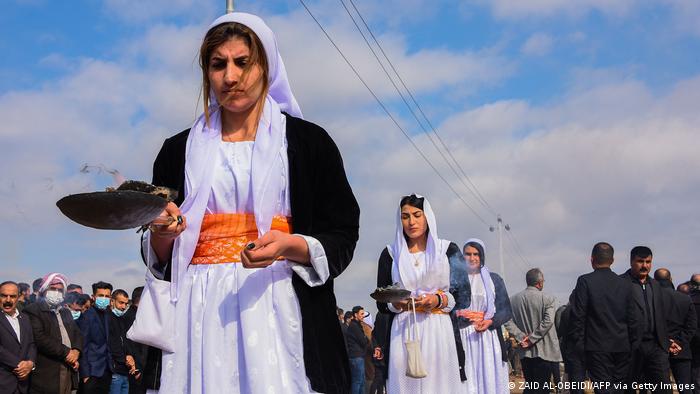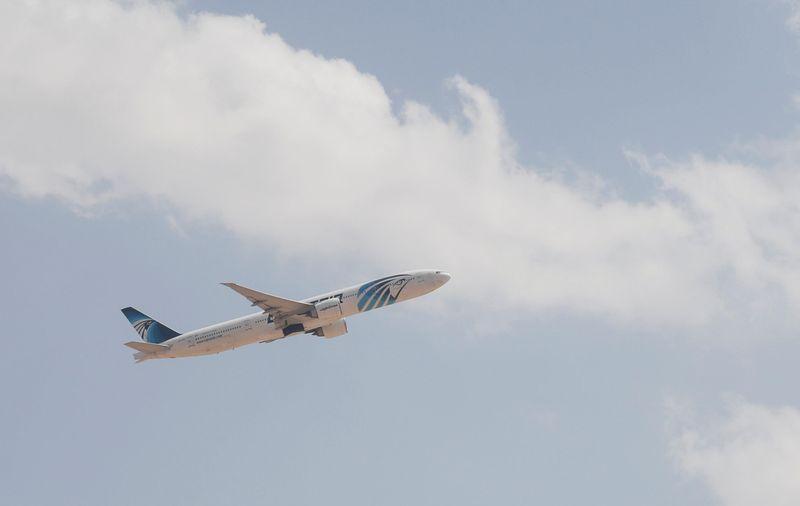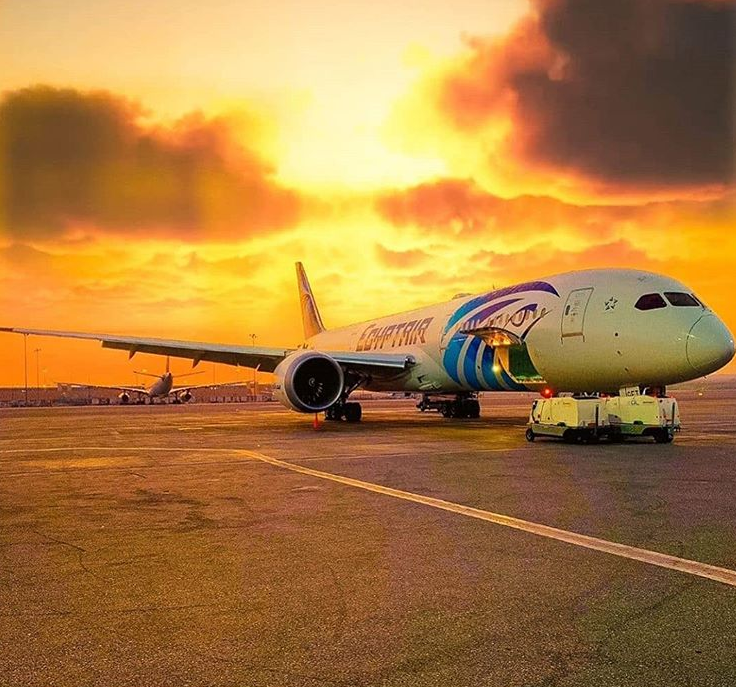
In a landmark decision this month, Iraq’s parliament passed the Yazidi Female Survivors Law, recognizing the atrocities committed by the extremist group known as “Islamic State,” or “IS,” against the ethno-religious group as genocide.
When “IS,” an Islamist terror group, took control of swathes of northern Iraq between 2014 and 2017, it killed, kidnapped and enslaved thousands ofYazidis, while tens of thousands more were forced to flee their homes.
“The passage of the law represents a watershed moment,” the United Nations’ International Organization for Migration (IOM) said in a statement after the law was passed on March 1. It makes Iraq one of the first Arab countries to focus “institutional attention on female survivors of conflict-related sexual violence.”
The bill was hailed by Iraqi President Barham Salih as “an important step.”
But even while the law aims to “prevent the recurrence of violations,” not everyone is convinced it will live up to its promises. Yazidi survivors say the existential threats that fueled “Islamic State’s” genocidal campaign against them still persist in Iraq.
How does the law help survivors?
The law pledges to provide assistance to victims of “IS,” primarily Yazidi female survivors who were kidnapped and later freed — but also members of other minorities who suffered the same fate, including Turkmen, Christian and Shabak Iraqis.
Under the new law, Iraq will provide a monthly stipend, residential land or free housing and psychological support to victims. Survivors of “IS” attacks will also be granted hiring priority for 2% of all public sector jobs.
Yazidi woman holds portraits of IS victims
A Yazidi survivor holds portraits of IS victims from her village of Kocho located near Sinjar, Iraq
Kidnapped Yazidi children will also receive support and the legal status of children born of survivors will also be addressed.
Moreover, the legislation marks August 3 — the day of a major “IS” attack on Yazidi communities in 2014 — as a national day of remembrance and establishes a special government office for Female Yazidi Survivors’ Affairs, which will open in northern Iraq’s Ninawa province. Ninawa is home to the Sinjar district, where the majority of Yazidis once lived.
Survivors have nobody
Ghazala Jango, a Yazidi woman from Sinjar, said the bill was, “essential for female survivors, given that the majority of them had no one to support them. All their family members were killed.”
Jango was 18 when the extremist group attacked Sinjar in 2014. Researchers say that some 10,000 Yazidis were killed or kidnapped during the assault and tens of thousands more were forced to flee into the nearby mountains. Jango was among them, having escaped on foot.
Destroyed buildings along a road into Sinjar
In August 2020, Sinjar was still in ruins, never having recovered from an attack by the Islamist terror group Islamic State (IS)
Six years later, she is back in Sinjar, where she works with the Yazidi-run Youth Bridge Organization, helping Yazidi families return to their homes. Even though it has been four years since then Iraqi Prime Minister Haider al-Abadi declared victory over “IS,” the Yazidi community is still suffering, Jango told DW.
The new law will help improve the financial situation of Yazidis, “who have been living in poverty for almost seven years,” she added. But, she says, it can’t help survivors feel safer, “It is only financial support … it does not guarantee protection,”¨Jango argues.
Many broken promises
Other Yazidis interviewed by DW echoed this sentiment. They are skeptical that the Iraqi government will deliver on the promises it has made.
“I hope this law will not just be a law on paper but will be a practical solution to help them,” said Ahmed Khudida Burjus, deputy director of Yazda, a multi-national, Yazidi-led organization that aims to assist the community in the aftermath of the genocide.
“In the past six years, many promises have been made and very little has been done. Yazidi villages and towns ravaged by Daesh [IS] still lie in ruins,” he noted, using the colloquial term for the group.
In search of protection
Thousands of Yazidis fleeing the brutality of IS militants sought refuge on Mount Sinjar. Many have since found shelter in a camp in northern Iraq, but around a thousand are still reportedly trapped on the high terrain.
It’s about more than just rebuilding, Burjus argued, “Everything is related — security, justice and rebuilding and development.”
And this is why the new Yazidi Female Survivors Law, while positive, is not enough. Burjus and other advocates for the community explain that the real problem is how the majority of Iraqis feel about the local Yazidi minority.
Devil worshippers
Thanks to misconceptions about their religion among Iraq’s Muslim majority, Yazidis have long been labelled “devil worshippers.”
The community has a long history of persecution dating back to the 16th century, and many groups, from invading Turks to local Kurds, have tried to convert them to Islam. “I am the descendent of 72 genocides,” is still a common phrase among Yazidis.
The Lalish Temple in Iraq’s Ninawa province houses the tomb of Sheikh Adi ibn Musafir and is the Yazidis’ holiest site
“Yazidis lost everything and they trust neither the Kurdish nor the Iraqi government,” 26-year-old Saud, a Yazidi man originally from Sinjar, said. Saud requested DW not use his real name because speaking out against the local Iraqi-Kurdish military could put him in danger.
In 2014, Iraqi-Kurdish forces were supposed to be in charge of security in the Sinjar area — which is adjacent to the semi-autonomous northern region of Iraqi Kurdistan — but when “IS” attacked, Iraqi-Kurdish soldiers withdrew, leaving civilians to fend for themselves.
“Our neighbors are Sunnis and Kurds. We were betrayed by all these tribes,” said Saud, who lived in Iraqi displacement camps for 18 months before being granted asylum abroad. Saud says he’d like to return home to Iraq but believes there are no guarantees of his safety.
Broader reconciliation required
According to German psychologist Jan Ilhan Kizilhan, a professor at Baden-Wuerttemberg Cooperative State University (DHBW) who has worked with more than a thousand Yazidi survivors in Germany, the medical, financial and psychological support the law promises will not suffice. True change will require “reconciliation between Yazidis and Muslims, who supported the ‘IS’ group,” Kizilhan told DW.
Yazda’s Burjus says negative attitudes towards Yazidis persist and permeate all aspects of society in Iraq.
“The majority of the population of Iraq sees Yazidis as infidels,” he explains. “When they work in restaurants, no one eats their food — because it’s made by a Yazidi.”
“That’s why we never feel safe,” the community advocate concludes. “And because there is no plan to eradicate these threats against Yazidis, whenever the opportunity arises, another extremist group will do it again [attack the Yazidi community]. It’s only a matter of time.”




